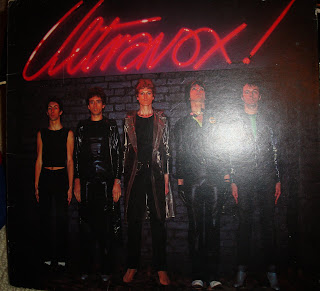Humankind has spent quite a few of its thousand years or whatever on earth devising little boxes to organise the word into. Whether or not these boxes help us to understand it better or simply serve to create deviseness , cliques and misery is not a question to easily answer. I for one despise the concept although I spend a lot of my life organising it into neat little lists which I can then feel miserable at not achieving and I suppose its the same with boxes, we can organise everything to a certain point before we realise there is always something which will not fit. And then they or it are made to feel miserable. Anyway in a spirit of deviousness I present 10 reasons to love this album and 10 reasons to set fire to it and dance around its ashes. Whether I mean them all or not is my little secret.
Here with ten reasons to love this album:
1. 'Munich.' Enigmatic song title but relatively straightforward ditty about the need for sensitivity because "people are fragile things". It also amounts to the closest they get to a jibe - "you should know by now, be careful what you put them through" - although of course singer Tom is far too earnest for it to sound too nasty. Sage advice for everyone who breathes.
2. You like jangly indie guitars? Great, so do the Editors! You like mostly gentle songs discussing love, life, relationships and the misery of living in a Midlands town (with the worst railway station in the world)? Hooray, you might find solace in its atmospheres created.
3. The Editors aim to be EPIC in their endeavours, which results in some anthemic tunes. But not anthemic in the Oasis-beered-up-hug-your-drunk-mate kind of manner, oh no, in a manner that is far more sedate, more about grandeur, reaching for the stars rather than for the pint glass. In the words of 'Camera' - "you fall from grace, but fall with such grace."
4. If you enjoy songs which collide melancholia with hopefulness you may very well enjoy these.
5. There are moments of frenetic rush amidst the calm, "All Sparks" echoing the sentiment that the subject is rushing to their doom all too soon as the embers fall from their dying cigarette whilst "Fingers in the factories" sees a level of desperation kept under wraps until that point but which rails against the tediousness of a life we are expected to be thankful for.
6. "Bullets" is majestic, its repeated refrain 'You don't need this disease" conveying a real sense of urgency over guitars spiralling heavenward.
7. There are no saxophone solos.
8. There is a pleasing flow to the arrangement of the songs, for all the hits of intensity from songs such as 'Lights' and 'Munich' and 'Blood', we are seduced into calm with "Fall' and "Open your arms".
9. "Blood" is not only a viscous scarlet material but the name of one of the best songs here, an energetic romp about someone living in dubious circumstances: "you're with the red lights, your side of town." Yikes, sounds familiar...
10. After taking your heart and subjecting it to various lashes, highs and lows, they have the wit to end on a note of serenity with "Distance" which is quite spectacular. Lulled by tender voice and gentle guitar we feel a fulfilling end to the listening experience.
Alright that was actually harder than I thought. Here then, are ten reasons to light this album with one of the life sparks and watch it burn, dancing and laughing, until a pile of pathetic ashes.
1. There are some real highlights, however as a whole it gets a bit samey. This is particularly the fault of the guitar which does not radically alter its sound throughout and maintains the same jangly monotony.
2. Like Coldplay, Embrace, and all those dour serious bands, earnestness gets a bit dull after a while. And who are the Editors to keep preaching to all these people? It seems to be a catalogue of telling people off - treat people better, stop being self-destructive, blah blah
3. Why is Munich called Munich? There seems to be no explanation as to why its named after the German city and its annoying me. A justifiable reason to want to burn it.
4. On a good day, the ballads sound tender and warm. On a bad day, they just sound dirgey.
5. Its pleasant but that can be pretty damning. There is little mystery. Its easy to hear what they sing about (although I swear 'Lights' begins with 'I still love the lino baby'), all the songs have recognisable verse chorus structure. Its hardly challenging or creating any provocation.
6. There are loads of indie bands like this, take your pick. Do we really need another? Especially since the Editors do not necessarily bring a new perspective to the themes considered here.
7. They might be a good live band, and the live atmosphere might enable some of the more tedious songs to breathe, become more lovely, but I have not been able to find out, humph.
8. It makes you long for something more experimental. It wears its influences and intentions too much on its sleeve and, although such honesty is endearing, you cannot imagine them coming up with anything different (and the second album is pretty similar). Perhaps a kazoo or a glockenspiel would have livened things up a bit?
9. The songs are pretty enough but as I am finding after returning to this album after some prolonged absence, I am finding it hard to recapture the reason why I felt attracted to this album in the first place. The magic seems to have gone.
10. Because it's fun to burn things.







